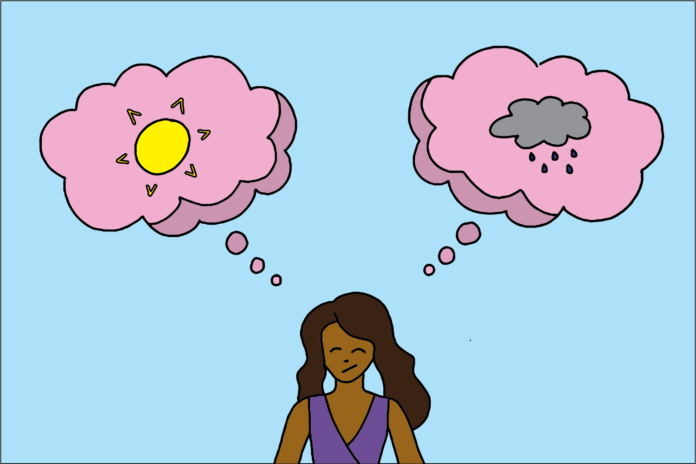Sustaining mental health remains important despite challenges posed by COVID-19, experts say
Any student can schedule individual counselling sessions with the Student Health and Wellness Center by calling 1(530)752-0871. The phone number for the 24/7 National Suicide Prevention Lifeline is 1(800)273-8255 or text RELATE to 74174 to confidentially chat with a Crisis Counselor. Speak with a trained counselor, available 24/7, through The Trevor Project at 1(866)488-7386. Yolo County’s 24-hour crisis line is 1(530)756-5000.
The COVID-19 pandemic has impacted daily life. Maintaining good mental health can be difficult when pandemic safety guidelines make it necessary to socially distance.
UC Davis Mental Health Initiative “houses both the UC Davis Mental Health Conference and UC Davis Mental Health Awareness Month,” the official Facebook page states. “Two major events which aim to engage students in [de-stigmatization] and education efforts, prompt attendees to organize around mental health issues, and offer them the opportunity for self-reflection and healing through mental health discourse.”
Resource and Research Coordinator for UC Davis Mental Health Initiative, Alexandra Damian, explained how COVID-19 has taken a toll on mental and emotional health over the past few months.
“In general, mental health plays a role in everyone’s lives through every single lens that you look at life,” Damian said. “So to think that a global pandemic is being layered on top of every single choice you make—there’s no doubt in my mind that COVID-19 and mental health are intertwined.”
The Yolo County Suicide Prevention and Crisis Services’ official website states that its mission is to give county residents constant access to mental health assistance.
“The mission of Suicide Prevention and Crisis Services of Yolo County is to provide crisis prevention and intervention, education and community outreach services to the residents of Yolo County […]” its website reads. “Today, SPYC is among the oldest suicide prevention crisis lines in the nation and operates 24 hours a day, 365 days a year.”
Executive Director of Suicide Prevention of Yolo County (SPYC) Diane Sommers explained that SPYC operates a 24-hour crisis line, provides education and prevention programs for schools and offers support groups for those who have lost a loved one to suicide.
Sommers described how the COVID-19 pandemic brought out increased feelings of anxiety, fear and uncertainty in people.
“No one could really imagine that this would have such a dramatic and life-changing [effect] upon our families, our neighbors, our friends, our community,” Sommers said. “COVID-19 impacts all of us, but some more than others.”
Sommers further explained that since the pandemic began seven months ago, SPYC has responded to over 5,400 contacts, which is about 2,000 more contacts than the previous year. She stressed the importance of reaching out to others during this time, especially when people have much deeper feelings of depression, loneliness and anger.
Macy Mehdioun, a third-year UC Davis neurobiology, physiology and behavior major and psychology minor, explained via email how the COVID-19 pandemic impacted her life as a student, as it has caused a negative shift in her mental health.
“Spending all day cooped up inside of my house was not good for me and I miss those days where I could use walking to class as my main form of exercise,” Mehdioun said. “My social interactions dropped significantly and I had a hard time feeling like the interactions I was having online were with real people on the other side of the screen.”
Damian further explained that the hardest part of taking care of one’s mental health is reaching out for help.
“As soon as you are aware that you need help, you are moving towards the right direction, even if it does not seem like it,” Damian said. “Any little step towards the right direction is a huge step.”
Mehdioun reflected on ways to better cope with the COVID-19 pandemic while still following social distancing guidelines.
“I personally think that finding your personal coping strategy is the best thing you can do,” Mehdioun said. “Whether it be podcasts, mindfulness activities, yoga, going out for walks, scheduling Zoom games with friends, playing video games, journaling, socially distanced hang outs, family game nights, cooking or just venting out your feelings.”
Sommers encouraged anyone experiencing mental health concerns right now not to be afraid of calling the helpline.
“It is really essential that people understand that the 24-hour crisis line is really available to anyone, and not only is it a way to support people, but it really helps them deal with the ever-changing landscape of their lives,” Sommers said. “We will continue to be here, to act in the best interest and the wellbeing of our community. We hope that people will reach out and call.”
Mehdioun gave a word of advice to other students like herself about finding inner peace during these troubling times.
“We will get through this together, and you are not alone when it comes to these feelings of lost motivation, isolation, fear, anxiousness and loneliness,” Mehdioun said. “Check in on your fellow friends, because they may be feeling the exact same things you are.”
Damian left one final message for those experiencing mental health concerns right now.
“Just know that you are not the only person struggling,” Damian said. “Be aware of what you need, don’t be afraid to reach out, and just find what makes you happy and hold on to it.”
Written By: Jelena Lapuz — city@theaggie.org




